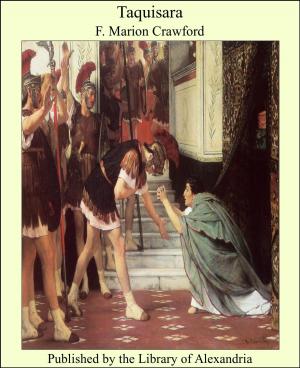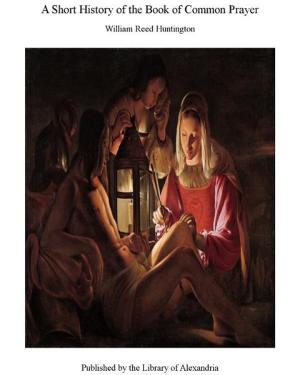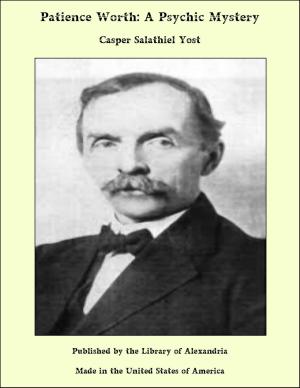Love and Pain and The Play-Function of Sex
Nonfiction, Religion & Spirituality, New Age, History, Fiction & Literature| Author: | Havelock Ellis | ISBN: | 9781465606907 |
| Publisher: | Library of Alexandria | Publication: | March 8, 2015 |
| Imprint: | Language: | English |
| Author: | Havelock Ellis |
| ISBN: | 9781465606907 |
| Publisher: | Library of Alexandria |
| Publication: | March 8, 2015 |
| Imprint: | |
| Language: | English |
The relation of love to pain is one of the most difficult problems, and yet one of the most fundamental, in the whole range of sexual psychology. Why is it that love inflicts, and even seeks to inflict, pain? Why is it that love suffers pain, and even seeks to suffer it? In answering that question, it seems to me, we have to take an apparently circuitous route, sometimes going beyond the ostensible limits of sex altogether; but if we can succeed in answering it we shall have come very near one of the great mysteries of love. At the same time we shall have made clear the normal basis on which rest the extreme aberrations of love. The chief key to the relationship of love to pain is to be found by returning to the consideration of the essential phenomena of courtship in the animal world generally. Courtship is a play, a game; even its combats are often, to a large extent, mock-combats; but the process behind it is one of terrible earnestness, and the play may at any moment become deadly. Courtship tends to involve a mock-combat between males for the possession of the female which may at any time become a real combat; it is a pursuit of the female by the male which may at any time become a kind of persecution; so that, as Colin Scott remarks, "Courting may be looked upon as a refined and delicate form of combat." The note of courtship, more especially among mammals, is very easily forced, and as soon as we force it we reach pain. The intimate and inevitable association in the animal world of combat--of the fighting and hunting impulses--with the process of courtship alone suffices to bring love into close connection with pain. Among mammals the male wins the female very largely by the display of force. The infliction of pain must inevitably be a frequent indirect result of the exertion of power. It is even more than this; the infliction of pain by the male on the female may itself be a gratification of the impulse to exert force. This tendency has always to be held in check, for it is of the essence of courtship that the male should win the female, and she can only be won by the promise of pleasure. The tendency of the male to inflict pain must be restrained, so far as the female is concerned, by the consideration of what is pleasing to her. Yet, the more carefully we study the essential elements of courtship, the clearer it becomes that, playful as these manifestations may seem on the surface, in every direction they are verging on pain. It is so among animals generally; it is so in man among savages. "It is precisely the alliance of pleasure and pain," wrote the physiologist Burdach, "which constitutes the voluptuous emotion." Nor is this emotional attitude entirely confined to the male. The female also in courtship delights to arouse to the highest degree in the male the desire for her favors and to withhold those favors from him, thus finding on her part also the enjoyment of power in cruelty. "One's cruelty is one's power," Millament says in Congreve's Way of the World, "and when one parts with one's cruelty one parts with one's power."
The relation of love to pain is one of the most difficult problems, and yet one of the most fundamental, in the whole range of sexual psychology. Why is it that love inflicts, and even seeks to inflict, pain? Why is it that love suffers pain, and even seeks to suffer it? In answering that question, it seems to me, we have to take an apparently circuitous route, sometimes going beyond the ostensible limits of sex altogether; but if we can succeed in answering it we shall have come very near one of the great mysteries of love. At the same time we shall have made clear the normal basis on which rest the extreme aberrations of love. The chief key to the relationship of love to pain is to be found by returning to the consideration of the essential phenomena of courtship in the animal world generally. Courtship is a play, a game; even its combats are often, to a large extent, mock-combats; but the process behind it is one of terrible earnestness, and the play may at any moment become deadly. Courtship tends to involve a mock-combat between males for the possession of the female which may at any time become a real combat; it is a pursuit of the female by the male which may at any time become a kind of persecution; so that, as Colin Scott remarks, "Courting may be looked upon as a refined and delicate form of combat." The note of courtship, more especially among mammals, is very easily forced, and as soon as we force it we reach pain. The intimate and inevitable association in the animal world of combat--of the fighting and hunting impulses--with the process of courtship alone suffices to bring love into close connection with pain. Among mammals the male wins the female very largely by the display of force. The infliction of pain must inevitably be a frequent indirect result of the exertion of power. It is even more than this; the infliction of pain by the male on the female may itself be a gratification of the impulse to exert force. This tendency has always to be held in check, for it is of the essence of courtship that the male should win the female, and she can only be won by the promise of pleasure. The tendency of the male to inflict pain must be restrained, so far as the female is concerned, by the consideration of what is pleasing to her. Yet, the more carefully we study the essential elements of courtship, the clearer it becomes that, playful as these manifestations may seem on the surface, in every direction they are verging on pain. It is so among animals generally; it is so in man among savages. "It is precisely the alliance of pleasure and pain," wrote the physiologist Burdach, "which constitutes the voluptuous emotion." Nor is this emotional attitude entirely confined to the male. The female also in courtship delights to arouse to the highest degree in the male the desire for her favors and to withhold those favors from him, thus finding on her part also the enjoyment of power in cruelty. "One's cruelty is one's power," Millament says in Congreve's Way of the World, "and when one parts with one's cruelty one parts with one's power."















